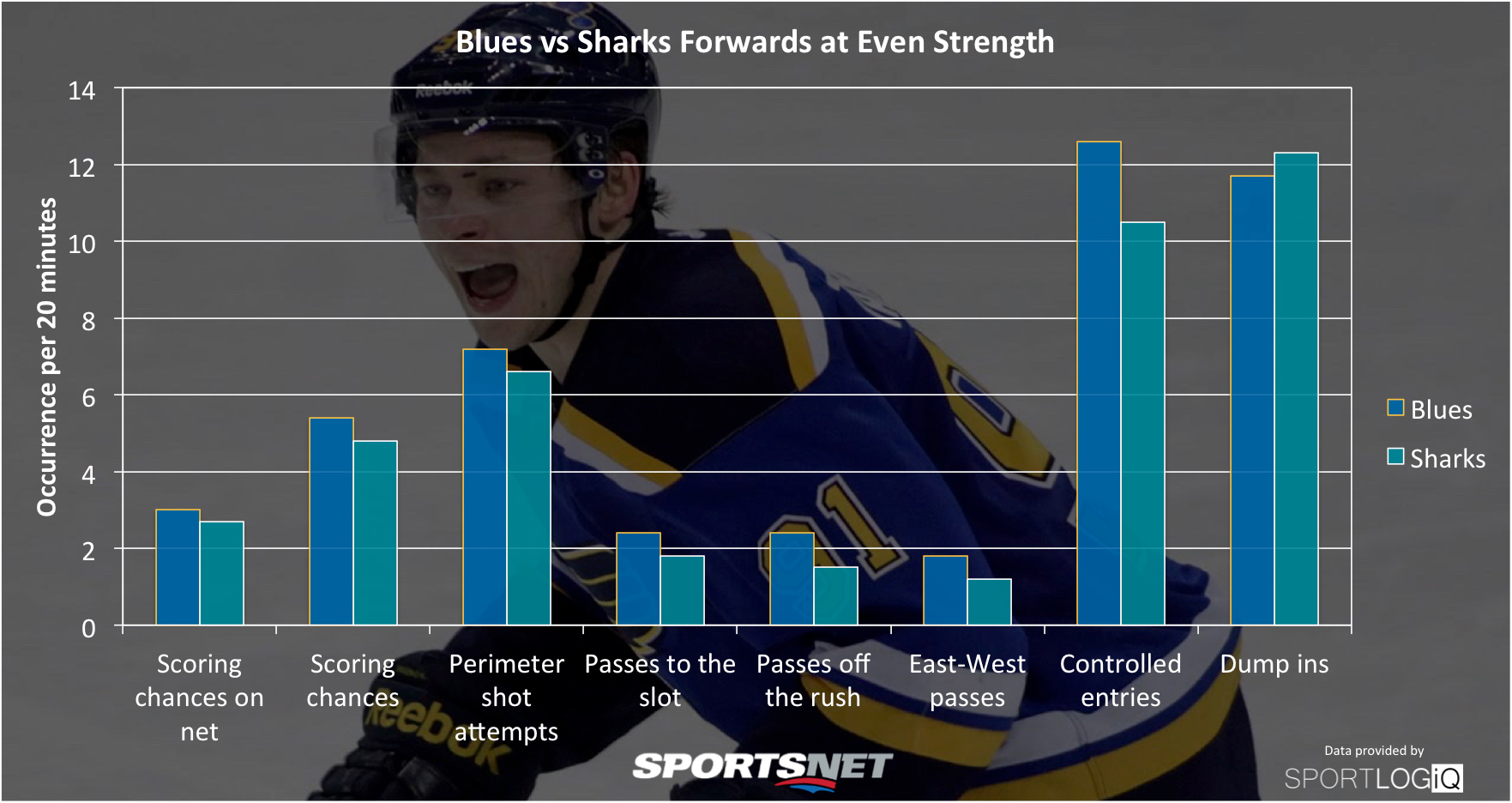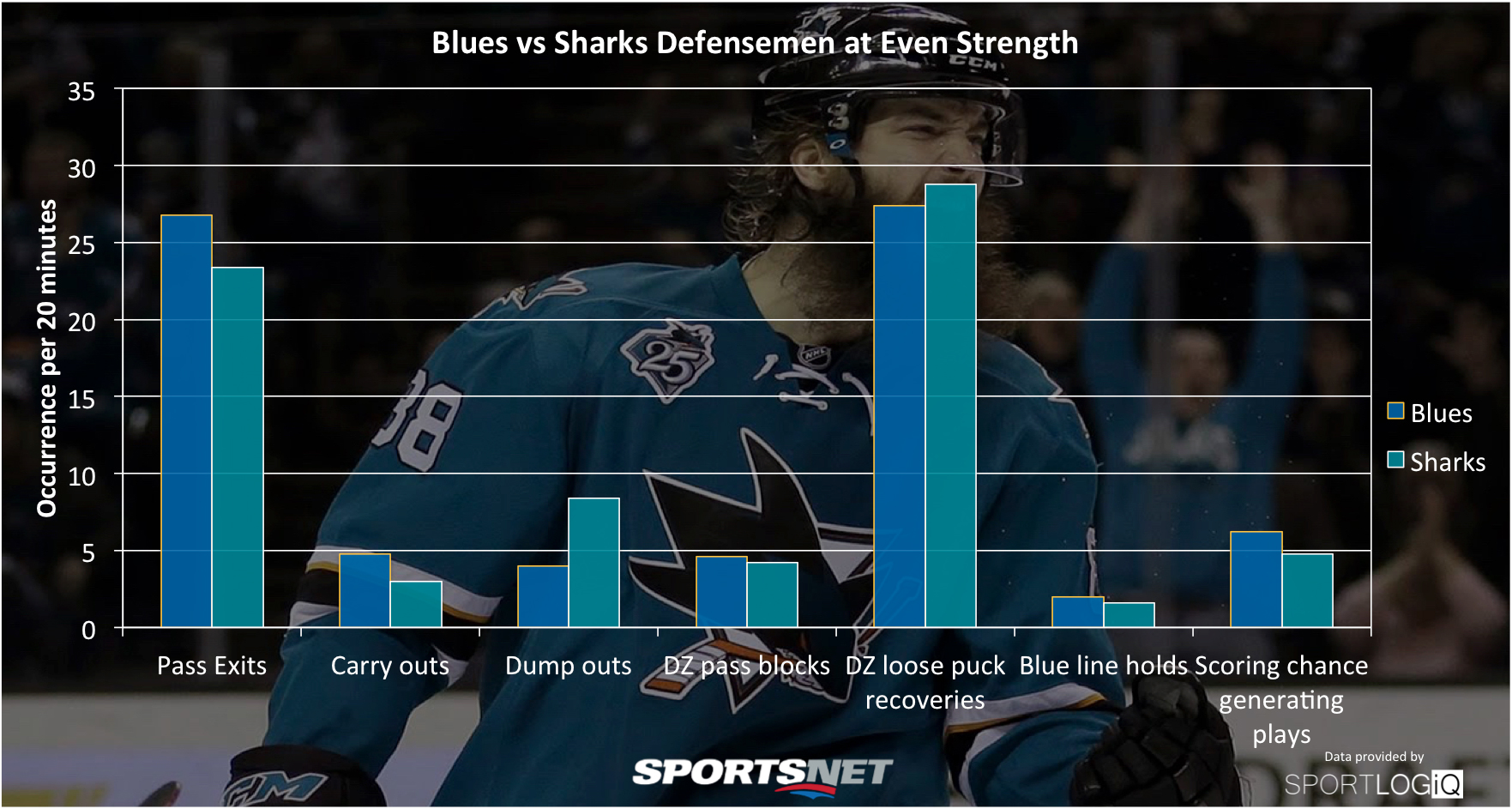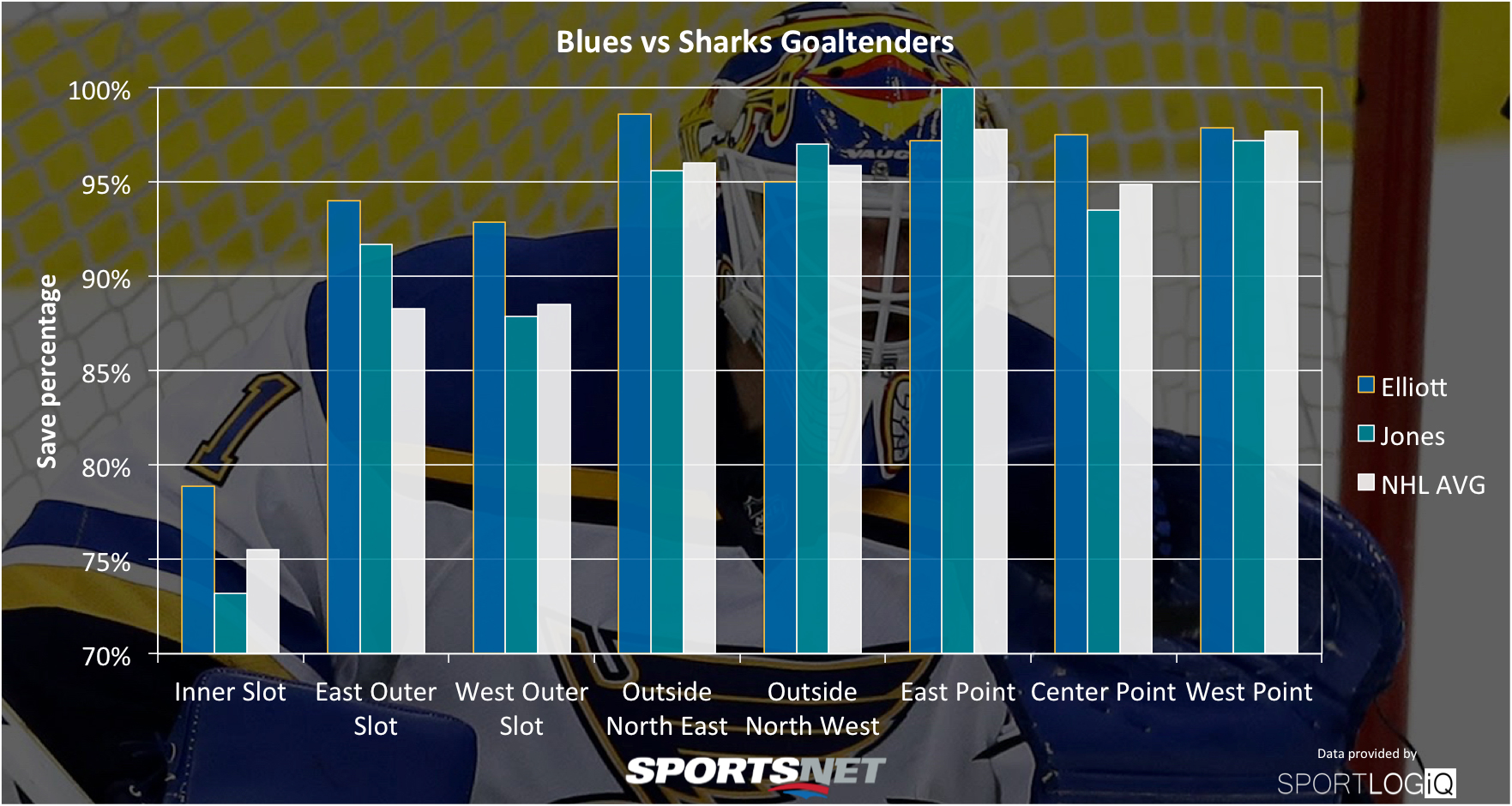For the past several years, the Western Conference Final has been considered by many to be the series that actually decides the Stanley Cup. However, this season the East seems stronger than normal, and none of the past four champions made it to Round 3.
Unlike the Eastern Conference where one team had an easier road, neither the Sharks nor Blues had it easy. St. Louis had to slay their demons in the first round against the defending Stanley Cup champions, and while the Chicago Blackhawks weren’t the team we’re used to seeing, they put up a strong fight. The very next round, the Blues had to take down the Western Conference regular season champion Dallas Stars, and while their porous goaltending and an injury to Tyler Seguin hurt, Dallas was still a strong team.
The San Jose Sharks had to exorcise demons of their own in Round 1, taking on the Los Angeles Kings who roared back to erase a 3-0 series lead against the Sharks the last time they met. The Kings were the NHL’s top possession team, but the Sharks consistently found ways to exploit Jonathan Quick, leading to a shorter series than anyone would have imagined. In the second round, the Sharks took on the underrated Nashville Predators team, which was also one of the league’s top possession teams with a weakness in goal the Sharks exploited.
So how do the Blues and Sharks compare? Looking at playoff numbers only, let’s break it down by position.

The Blues have the benefit of playing teams with a more loose style than the two the Sharks faced, but across the board the Blues’ forwards have been able to create higher quality chances than the Sharks have. The differences are small in almost every area, but when one team is ahead everywhere, it’s more signal than noise.
The big advantage the Blues have at forward is how well they carry the puck into the offensive zone and attack off the rush, moving the puck East-West more often and more successfully than the Sharks have. The Sharks are also the only team remaining that dump the puck in more often than they carry it in, which leads me to conclude that the Blues have the advantage at forward.
THE EDGE AT FORWARD GOES TO: ST. LOUIS

On defence, the Blues remain strong, exiting their own zone with control at a higher rate, blocking more passes in their own zone, keeping the pressure on by blocking clearing attempts at the opposing blueline more often, and are more involved in creating scoring chances.
The Sharks defenders win more battles, but they dump the puck out much more often, giving away possession too easily. This looks like yet another advantage for the Blues.
THE EDGE ON DEFENCE GOES TO: ST. LOUIS

Brian Elliott is above league average in an impressive six of eight zones in the playoffs, while Martin Jones is above average in just three zones. This isn’t enough on its own to give Elliott the nod over Jones, but the gap in Inner Slot save percentage is huge, with Jones stopping just 73.2 per cent of shots from that area, and Elliott at 78.9 per cent.
Factor in that Elliott faced two teams with a high-octane offence, and Jones faced two teams that choke out defensively, and it’s conclusive that Elliott has the stronger case before we get into comparing them by each zone, where Elliott is ahead of Jones in six of eight zones.
Surprisingly, the Blues have held a fairly strong edge at every position, leading me to believe they’re strong favourites to come out of the West. The big X-factor in this series though, is the Sharks’ insanely effective power play, but the Blues dealt with a similar problem already in Round 1.
THE EDGE IN GOAL GOES TO: ST. LOUIS







